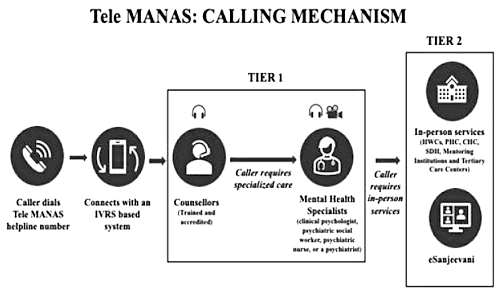PIB Summary- 30th May, 2024 | PIB (Press Information Bureau) Summary - UPSC PDF Download
PRAGATI-2024
Context
The Central Council for Research in Ayurvedic Sciences (CCRAS) has launched a groundbreaking initiative called “PRAGATI-2024” (Pharma Research in AyurGyan And Techno Innovation) to foster collaborative research and innovation in the field of Ayurveda.
PRAGATI-2024 and CCRAS
PRAGATI-2024 Initiative:
- PRAGATI-2024 is an initiative aimed at exploring research opportunities and fostering collaboration between the Central Council for Research in Ayurvedic Sciences (CCRAS) and the Ayurveda drug industry.
Role of CCRAS:
- The CCRAS is an autonomous body under the Ministry of AYUSH, which oversees Ayurveda, Yoga & Naturopathy, Unani, Siddha, and Homeopathy.
- It serves as the apex body in India for the formulation, coordination, development, and promotion of research based on scientific principles in the Ayurveda and Sowa-Rigpa systems of medicine.
About Traditional Medicine:
The traditional Indian system of medicine comprises of Ayurveda, Yoga and Naturopathy, Unani, Siddha, and Homeopathy (AYUSH), is a perennially neglected alternative medicine sector.
Ayurveda:
- The word Ayurveda means ‘Science of Life’ and employs treatment modalities, such as purification, palliation, prescription of various diets, exercises and the avoidance of disease causing factors and it evolved nearly 5000 years ago.
- The Ayurvedic medicine, though practiced for a wide range of health needs, is more commonly used for preventive and health and immunity boosting activities.
Yoga & Naturopathy:
- Practices of Yoga are reported to have originated in India and is now being adapted to correct lifestyle by cultivating a rational, positive and spiritual attitude towards all life situations.
- 21st June is designated as ‘International Yoga Day’.
- Naturopathy or the naturopathic medicine is a drugless’ non- invasive system of medicine imparting treatments with natural elements based on the theories of vitality, toxemia and the self-healing capacity of the body, as well as the principles of healthy living.
- The common naturopathy modalities include counselling, diet and fasting therapy, mud therapy, hydrotherapy, massage therapy, acupressure, acupuncture, magnet therapy and yoga therapy.
Unani Medicine:
- It was originated in the Arab world, though over a period of time it imbibed some concepts from other contemporary systems of medicines in Egypt, Syria, Iraq, Persia, India, China and other Middle East Countries.
- Unani medicine treats a patient with diet, pharmacotherapy, exercise, massages and surgery.
Siddha:
- Originated in India and is amongst the oldest systems of medicine in the country.
- It takes into account the patient, his/her surroundings, age, sex, race, habitat, diet, appetite, physical condition etc. to arrive at the diagnosis.
- Siddha System uses minerals, metals and alloys and drugs and inorganic compounds to treat the patients.
- Unlike most T&CM, this system is largely therapeutic in nature.
- Siddha literature is in Tamil and it is practiced largely in Tamil speaking part of India.
Homeopathy:
- The word ‘Homeopathy’ is derived from the Greek words, ‘Homois’ meaning ‘similar’ and ‘pathos’ means ‘suffering’.
- It originated in Germany and was introduced in India around 1810-1839.
- It uses highly individualized remedies selected to address specific symptoms or symptom profiles.
- It is practiced in many countries and in India, where it is the second most popular system of medicine.
Sowa-Rigpa:
- The word combination means the ‘science of healing’ and is considered one of the oldest living and well-documented medical traditions of the world.
- It originated from Tibet and is widely practiced in India, Nepal, Bhutan, Mongolia and Russia.
Tele-MANAS
Context:
The National Tele-Mental Health Programme in India has reached a significant milestone, receiving over 10 lakh calls on its Tele-MANAS toll-free number, averaging 3,500 calls per day.
About Tele-MANAS
Tele-MANAS will be organised in two tier system;
- Tier 1 comprises of state Tele-MANAS cells which include trained counsellors and mental health specialists.
- Tier 2 will comprise of specialists at District Mental Health Programme (DMHP)/Medical College resources for physical consultation and/or e-Sanjeevani for audio visual consultation.
About MANAS:
- It is a comprehensive, scalable, and national digital wellbeing platform and an app developed to augment mental well-being of Indian citizens.
- It integrates the health and wellness efforts of various government ministries, scientifically validated indigenous tools with gamified interfaces developed/researched by various national bodies and research institutions.
- It is based on life skills and core psychological processes, with universal accessibility, delivering age-appropriate methods and promoting positive attitude focusing on wellness.
- Developed by National Institute of Mental Health and Neuro Sciences (NIMHANS) Bengaluru, Armed Forces Medical College (AFMC) Pune and Centre for Development of Advanced Computing(C-DAC) Bengaluru.
- Catering to the overall wellbeing of people of all age groups, the initial version of MANAS focuses on promoting positive mental health in the age group of 15-35 years.
Aim:
- To build a healthier and happier community, to empower it to nurture its innate potential for building a Swasth and Atmanirbhar Bharat.






















